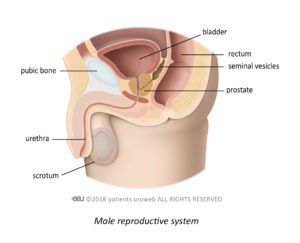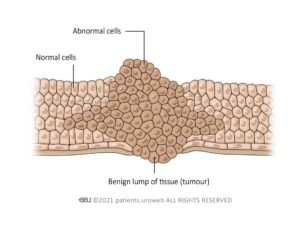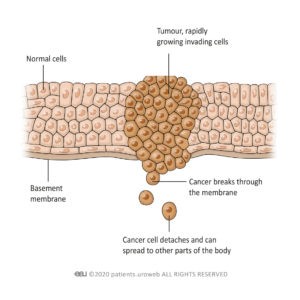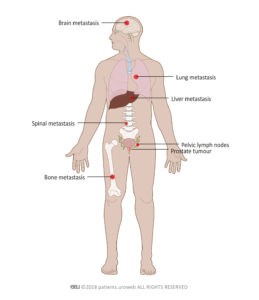Prostate cancer patients have several treatment options available, depending on factors such as the stage of cancer, overall health, and personal preferences, which may include:
Surgery
Prostate cancer treatment often includes a surgical option called radical prostatectomy, which is a form of prostate surgery commonly recommended for early-stage prostate cancer. This procedure may be advised if the tumour is localised to the prostate. As a key prostate cancer treatment, radical prostatectomy involves the complete removal of the prostate and often includes the pelvic lymph nodes. While this prostate surgery can be effective in treating early stages of the disease, it's important to note that, like other prostate cancer treatments, it may have side effects. Some possible side effects of radical prostatectomy include incontinence (not being able to control urine) and impotence (not being able to have erections). These side effects can also occur with other forms of treatment for prostate cancer.
Radiation Therapy
Radiation therapy uses high-energy beams to kill the cancer cells. External beam radiotherapy (EBRT) focuses radiation from outside the body on the cancer. EBRT techniques involved may include Three-dimensional Conformal Radiation Therapy (3D-CRT) where radiation beams are shaped and aimed at the tumour from several directions. Stereotactic Body Radiation Therapy (SBRT) uses highly focused beams of high-dose radiation given on one day or over several days. Brachytherapy is another form of radiotherapy that involves the surgical placement of permanent or temporary implants to deliver radiation to the prostate.
Hormone Therapy
Hormonal therapy is a widely used prostate cancer therapy, particularly effective when the cancer has spread or when combined with radiotherapy for locally advanced or high-risk cases. As an important prostate cancer therapy option, hormonal treatment works by interfering with the growth stimulatory effects of male hormones on prostate cancer cells, thereby slowing the cancer's progression. This form of prostate cancer therapy comes in two main types:
- Drug-based hormonal therapy: Drugs that prevent the release or counter the action of male hormones
- Surgical hormonal therapy: Surgical removal of the testes which are a major source of male hormones
Both approaches to hormonal prostate cancer therapy aim to reduce the levels or effects of male hormones that can fuel prostate cancer growth. The choice between these prostate cancer therapy options depends on various factors, including the patient's overall health and cancer stage as determined in consultation with your healthcare team.
Chemotherapy
Chemotherapy, while not as common as other prostate cancer treatments, can play a crucial role in managing advanced cases. This prostate cancer treatment option is typically considered when hormone therapy proves ineffective. It is generally well-tolerated and can alleviate bone pain for most patients. Chemotherapy is usually given in cycles with each cycle lasting for a few weeks. The body is given time to recover during a rest period that follows each cycle of treatment.
Active Surveillance or Watchful Waiting
Many prostate cancers grow slowly, potentially taking years to cause symptoms or spread. Consequently, some men diagnosed with early stage prostate cancer may not require immediate intervention. For these cases, two conservative approaches to early stage prostate cancer treatment have emerged: active surveillance and watchful waiting.
Active surveillance refers to a protocol that allows patients with localised prostate cancer to be observed safely for a period of time, and then for deferred treatment when necessary.
Watchful waiting is also advocated as a reasonable approach for some men with prostate cancer (especially asymptomatic men with a limited life expectancy) who are observed and treated only when symptoms or spread occurs.
Energy Ablative Therapy
Energy ablative therapies such as cryotherapy have been offered as minimally invasive therapy options for highly selected men with localized prostate cancer. Cryotherapy involves placing cryoneedles into the prostate through the perineal skin and uses controlled freezing and thawing to destroy prostate cancer cells. This form of treatment is sometimes used in men whose prostate cancer has returned following other treatments.






















